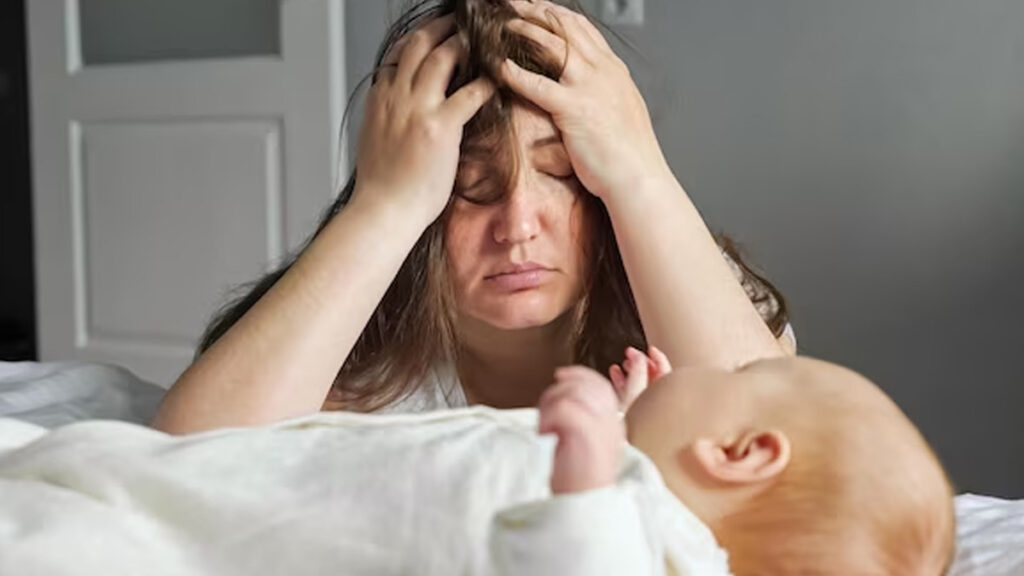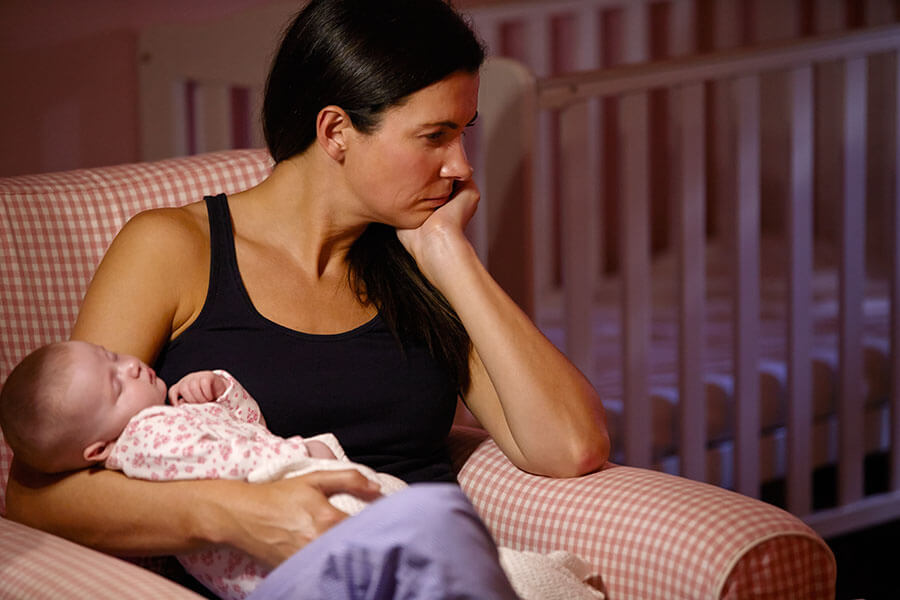Becoming a parent is often described as one of the most joyous experiences in life. However, for many new mothers, the period following childbirth can be overwhelming and fraught with unexpected challenges. One such challenge is postpartum depression (PPD), a serious and often misunderstood condition that affects many women. Understanding the signs, symptoms, and available treatments for postpartum depression is crucial for new parents and their support networks..
Postpartum depression is a type of mood disorder associated with childbirth, affecting mothers after the birth of their child. Unlike the “baby blues,” which are common and typically resolve within two weeks, PPD is more intense and longer-lasting. It can significantly impact a mother’s ability to care for her baby and handle other daily tasks.

What are some common postpartum depression symptoms?
After giving birth, about 1 in 10 women experience some form of depressive psychological change. In extreme cases, postpartum psychosis may also occur in 1 out of every 1000 women.
- An interesting side note: many dads too undergo some form of depression within the first year of their child being born!
The most common signs of postpartum depression are easily missed. These are associated with giving birth and may initially not indicate any serious mental health issues:
- Difficulty falling asleep or maintaining a regular sleep schedule
- Frequent appetite and mood changes
- Severe and long-lasting fatigue (being tired despite getting rest)
- Lower sexual drive or libido
Along with the above general postpartum symptoms, major clinical depression after giving birth may also be associated with the following:
- Disinterest in your newborn baby, feeling detached and unconnected to them (lacking any strong sense of bonding)
- Crying frequently (often without any reason) for long periods
- Feeling down/depressed
- Strong sense of anger
- Inability to feel pleasure (or a decrease in your ability to feel pleasure)
- Feeling hopeless, helpless, insecure, unworthy and similar
- Suicidal thoughts, thoughts of death
- Thoughts and feelings of causing harm to someone
- Loss of concentration abilities
Postpartum depression causes
There aren’t any confirmed causes of postpartum depression. We do know that it is most probably related to the extreme hormonal changes in the woman’s body during this time. For example, oestrogen, the female hormone associated with reproduction, is ten times higher during pregnancy. But within 3 days of giving birth, this number drops to pre-pregnancy levels.
This is a rapid hormonal change and it is linked to this postpartum depression, but the exact processes are not understood. Other factors that contribute to this condition include lack of sleep, anxiety over the newborn baby and its care as well as psychological factors like loss of self-image, self-identity, a sense of not being in control or even a perceived loss of attractiveness.
Apart from these potential symptoms, certain risk factors play a role in postpartum depression:
- A history of depression
- Having mixed feelings about the pregnancy
- Being younger at the time of giving birth
- Family history of associated mental health issues (particularly mood disorders)
- Stressful life events like health or employment problems
- Having a child with special needs
- Personal sociological factors like living alone, lack of support, marriage troubles
- Multiple birth labour (twins or triplets)
Treatment for Postpartum Depression
If you or someone you know is experiencing symptoms of postpartum depression, it’s important to seek help. Effective treatments are available and can include:
Psychotherapy
- Cognitive Behavioral Therapy (CBT): Focuses on changing negative thought patterns and behaviors.
- Interpersonal Therapy (IPT): Addresses interpersonal issues and aims to improve relationships and social functioning.
Medication
- Antidepressants: Can be prescribed to help manage symptoms. It’s important to discuss potential side effects and breastfeeding considerations with a healthcare provider.
Support Groups
- Peer Support: Joining a support group for new mothers can provide a sense of community and shared experiences.
- Online Communities: Virtual support groups and forums can offer additional support and resources.
Self-Care Strategies
- Rest and Nutrition: Prioritizing sleep and maintaining a balanced diet.
- Physical Activity: Regular exercise can help improve mood and overall well-being.
- Mindfulness and Relaxation Techniques: Practices such as yoga, meditation, or deep-breathing exercises.
Professional Help
- Consultation with a Healthcare Provider: Regular check-ups with a doctor or mental health professional to monitor and address symptoms.
- Postpartum Doula Services: Professional postpartum doulas can provide practical and emotional support during the post-birth period.
Conclusion
Giving birth can be one of the most joyous occasions in your life. But it is important to be prepared for the good and the bad. Postpartum depression isn’t likely to affect many women, but the ‘baby blues’ as it’s called can affect as many as 70% of women. In the days following your pregnancy, be sure to monitor your mental health and get as much sleep as you need. Speak with your partner, family members, social support and doctor in case you feel you may be experiencing signs of postpartum depression. Consult a psychiatrist without delay if you notice any symptoms of postpartum depression.



